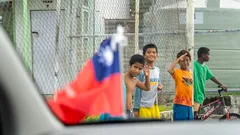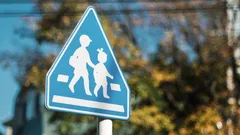256
2
4 minutes
Suggested Articles

First-generation Ivy Leaguers triumph over unique college challenges
Discover key insights, life hacks, and data-driven tips for first-generation college students thriving in prestigious U.S. universities. Find practical strategies, unique challenges, and fresh perspectives essential for student success.

Parents and educators empower kids with disabilities through adaptive sports
Civic Education

Inside the Hidden Struggles of Student Mental Health in American Schools
Civic Education

Families face hard choices as new rule narrows Head Start access for immigrant children
News & Updates

Americans build empathy and strengthen democracy through language learning
Civic Education

Funding freezes put affordable childcare and adult education at risk
News & Updates

How Civic Engagement Is Transforming College Life and Shaping Leaders
Volunteer

High schoolers drive change as schools empower youth civic voices
Civic Education

Parents empower kids with smart routines to boost school and neighborhood safety
News & Updates

Students and educators defend free speech as campus politics reshape college life
Civic Education

Unlocking the Hidden Power of Social Learning and Collective Intelligence
News & Updates

First-generation Ivy Leaguers triumph over unique college challenges
Hiring

Americans brace for possible Social Security cuts that reshape retirement
News & Updates

Why this Florida data leak changes how we think about privacy
News & Updates

Build your own AI chatbot and unlock hands-on tech superpowers
Resources & Tools

How to outsmart hidden medical expenses in your golden years
Civic Education

California workers secure jobs this summer with new 2025 laws
Hiring
 Love Women Vibes
Love Women Vibes

Comments